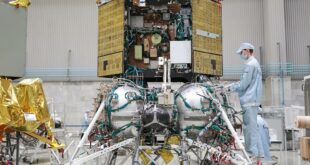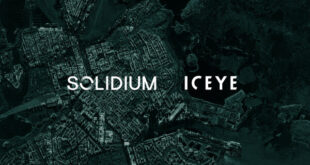
One of the more notable space stories of the past few weeks is that of two Russian satellites allegedly ‘stalking’ a KH-11 reconnaissance satellite operated by the US National Reconnaissance Office (NRO). Given heightened geopolitical tensions between great powers and the increasing occurrence of Rendezvous and Proximity Operations (RPO) in Earth orbit, SpaceWatch.Global has published expert perspectives on this unfolding story over the past few weeks.
Our sixth and final perspective comes from Dr. Deganit Paikowsky, Israel’s leading space policy expert and scholar.
1) How would you characterize the alleged manoeuvres of the Russian satellites?
In their quest for supremacy in global politics the great powers take actions aimed to advance their capabilities and assets, as well as find ways to project their power, in domains they perceive as strategic. In this respect, space has long been a political practice. In the last several years, we have witnessed the rise of the competition over global supremacy among great powers. The alleged manoeuvres may be characterized as part of this wider and longer process of rising tensions.
2) General Jay Raymond, Commander of the U.S. Space Force, has characterised the manoeuvres of the Russian satellites as “threatening” and “destabilizing.” Is this a fair characterization?
From the point of view of the speaker, it may be understandable why these alleged events are perceived as “threatening”. The potential implication for global stability however has to take into account the fact that current global space activity is much more complex and diverse than in the past. Maintaining stability is in the interest of a wide variety of government and private actors. In the short-term, moves of this kind may indeed undermine stability, but in the long-term the sense of instability may stimulate moves to increase stability, including instilling perceptions of responsible and stabilizing behavior at the global level.
3) What can/should be done to mitigate/stop these kinds of incidences? How likely are we to see anything done at all?
The focus of those engaged in space in the public and private sectors should be in promoting the concept of a “responsible player” in the space sector. Responsible players are those for whom the security, safety, and sustainability of the space environment are valuable. Responsible players will realize their space assets and capabilities, as well as future capabilities and assets, taking into account their interests while also taking into account the broad implications of their conduct on the space environment.

Dr. Deganit Paikowsky holds a Ph.D. in Political Science from Tel Aviv University. As a Ph.D. candidate, she won the Guggenheim Pre-Doctoral Fellowship of the National Air and Space Museum, Smithsonian Institute. Currently, she lectures at the Graduate program for Security and Diplomacy Studies at Tel Aviv University, and is a Non-resident Scholar at the Space Policy Institute at the Elliott School for Foreign Affairs, George Washington University. She published extensively in leading professional peer-reviewed journals, as well as in popular platforms. As of now, the highlight of her scholarly work is her book, The Power of the Space Club, published by Cambridge University Press in 2017.
 SpaceWatch.Global An independent perspective on space
SpaceWatch.Global An independent perspective on space




